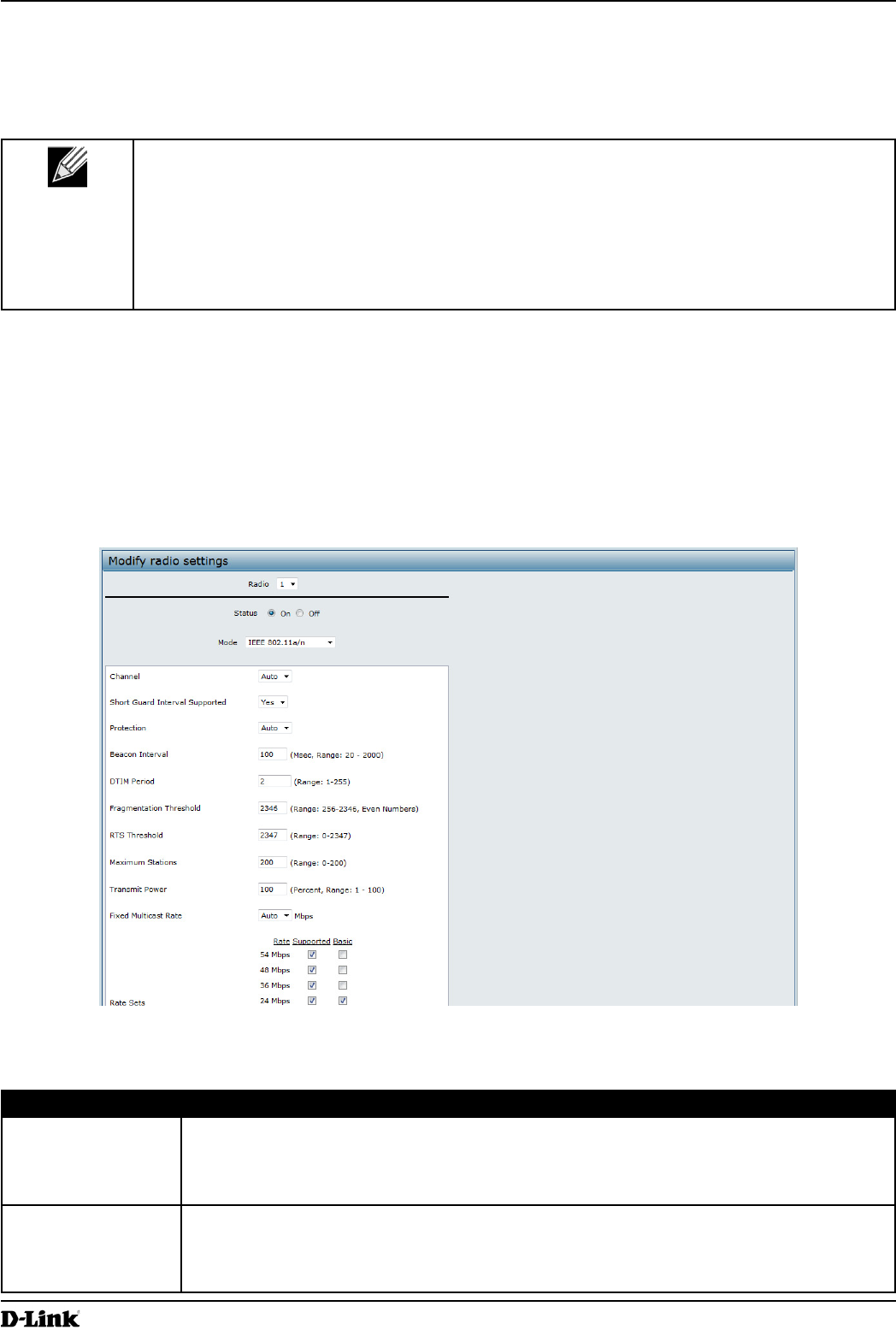
Unied Access Point Administrator’s Guide
Unied Access Point Administrator’s Guide
Page 40
March 2012
Section 4 - Managing the Access Point
information. The DWS-4000 Series switch does not communicate with the AE.
AeroScout tags operate only in 802.11b/g mode. Therefore, network administrators who use the AeroScout tags must
congure at least one radio on APs that are expected to detect tags in either 802.11b/g or 802.11b/g/n mode. The
radios congured in 2.4 GHz IEEE 802.11n mode cannot detect AeroScout tags.
Note: The following notes apply to AeroScout product and protocol support:
•) D-Link does not sell AeroScout products. Contact AeroScout for AeroScout hardware,
software or deployment information.
•) The AE protocol does not support any authentication or encryption between the AE server
and the access point.
•) The AE protocol requires radios to operate in promiscuous mode. This means that the AP
receives and processes all packets detected by the radios, as opposed to processing only
packets destined to the APs BSSID. This can affect AP throughput.
Modifying Radio Settings
Radio settings directly control the behavior of the radio devices in the AP and its interaction with the physical medium;
that is, how and what type of electromagnetic waves the AP emits.
To specify radio settings, click the Radio tab in the Manage section.
Different settings display depending on the mode you select. All settings are described in the table below.
Figure 18 - Modify Radio Settings
The following table describes the elds and conguration options for the Radio Settings page.
Field Description
Radio Select Radio 1or Radio 2 to specify which radio to congure. The rest of the settings on this
page apply to the radio you select in this eld. Be sure to congure settings for both radios.
Radio 1 operates in the 5 GHz band (802.11a/n), and Radio 2 operates in the 2.4 GHz band
(802.11b/g/n).
Status (On/Off) Specify whether you want the radio on or off by clicking On or Off.
If you turn off a radio, the AP sends disassociation frames to all the wireless clients it is
currently supporting so that the radio can be gracefully shutdown and the clients can start
the association process with other available APs.


















